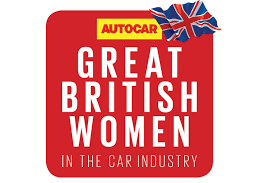
The opportunity I’m talking about is the shortage of recognised female talent across the car, automotive and general motoring-related industries.
This opportunity is of equal interest to female friendly businesses that are already going that extra mile for women customers and those that recognise that being (seen as) a female friendly employer will likely improve staff retention and recruitment appeal.
When it comes to taking full advantage of either opportunity, that depends on the business strategy employed to follow this through.
The problem arises when first movers test the water here then get cold feet. This often happens to do with gender because some businesses think equality means treating men and women the same – which would be fair enough if men and women were the same. Which we aren’t of course as female perceptions of the motor industry (as customers and potential staff) confirm.
So, to address these areas, businesses need to decide their strategic recruitment plan and some are clearly doing this better than and ahead of others.
Car Dealer Magazine
Initially Car Dealer Magazine planned to get women in the industry together and see what’d happen – by organising an event at Car Dealer Expo 2015 that introduced different women and different careers to female attendees. Their first speakers included a rally driver, garage owner, Dealer Principal and finance specialist.
After these individual presentations a Q and A session revealed some dissatisfaction in female ranks. Why were scantily clad promotional girls on display at such events? Why were women a sideshow industry issue (the room was very small and away from the main stage) and why wasn’t this sort of presentation aimed at women outside the industry, not in it?
So I was interested to see if the Car Dealer Expo 2016 addressed these issues and by and large it did. Yes, the room was bigger, yes the MC was an impressive Miriam Gonzales Durantez (aka Mrs Nick Clegg) and yes Gaia Innovation MD Julia Muir brought local schoolgirls along to find out about automotive careers and yes there were many excellent issues raised again.
But the promotional girls were still there and the main company that uses them was both a sponsor of the event and a speaker in the Women In The Motor Industry session. I wrote about this at the time if you’d like to read more about this event.
This raises the interesting question of impartiality and independence in this area. Most of us run businesses not charities so we have to tread carefully and be seen to payback when accepting event sponsors that just might put the organiser at odds with key members of their audience.
Sadly I wasn’t able to attend the 2017 event due to an early diary clash so I missed the speed networking sessions with 100 local female students, sponsored by VW. But if you were there, by all means bring me up to date with your memories and thoughts about the day.
Autocar’s Great British Women in the Car Industry

Autocar’s Top 100 Great British Women Awards took a different tack, setting out to attract female engineers into car manufacturing roles by promoting a wide range of female careers and recognising high achievers in the car industry.
Their first event in 2016 was held at the SMMT offices where Linda Jackson (still the only UK/European female CEO of a car manufacturer) headed a fabulous band of female talent covering a wide range of job areas and functions.
Their Year Two event was considerably more impressive, held in plush conference facilities at Twickenham Stadium and free of charge to invitees, including lunch. Well attended, as you’d expect, local MP Sir Vince Cable delivered the opening address and Paul Geddes, CEO of Direct Line Insurance, delivered the Keynote speech.
There were two main panel debates tackling similar issues. The morning group was more attuned to the status quo I felt, but the afternoon panel was keen to see change or were already doing things differently and sharing best practice in many areas.
There was a definite focus on car manufacturers and franchised dealer groups at this event and little of interest for the independent sector.
Throughout the day I became more and more convinced that
1. Nobody knows the precise gender metrics in the automotive industry. For example how many employees are female in boardroom/senior management/middle management/car sales/aftersales/parts/engineering/design & IT roles in car manufacturers, top dealership groups, retail and other aftermarket roles. This means it’s going to be difficult to measure change until we do, or to calculate areas where the commercial need is greatest eg do we need more female engineers or more female car sales staff and so on…
2. There’s a weary school of female activists like me who want to shake up the male driven automotive industry by demanding a serious commitment (and action plan) towards diversity – one that takes effect NOW, not in 10+ years time.
3. By and large, long term female employees in the motor industry seem to think more like their male peers than other women drivers who don’t work in the motor industry.
4. Female returners to the industry, especially ones in HR functions, better understand what ‘typical mums and daughters’ think about the automotive industry and are more attuned to bridging this perception gap to recruit/retail the right female talent.
5. Some businesses are clearly working harder than others to be (seen as) female friendly from the point of view of their female customers, staff and future recruits. And this seems to be working.
6. Regardless of gender, most automotive staff seem to love cars and engines.
7. Where a potential female recruit is clearly more in tune with people and customer service than cars or has exceptional professional credentials but little love for engines or technology should she feel out of place? Perhaps she sees the industry as more about cars than people?
The UK Automotive 30% Club
 So could the new UK Automotive 30% Club be an industry catalyst for change here? As mentioned at the Autocar 2016 event this started out with leading dealership groups stating an aim to have 30% of senior roles in their businesses held by women by 2030.
So could the new UK Automotive 30% Club be an industry catalyst for change here? As mentioned at the Autocar 2016 event this started out with leading dealership groups stating an aim to have 30% of senior roles in their businesses held by women by 2030.
This is supported by the likes of the IMI, big dealer groups Vertu Motors, Lookers, Group 1 Automotive, TrustFord, Vantage Motor Group and manufacturers Toyota, Mazda, Kia and Bentley.
But is a 30% target in 13 years ambitious enough I wonder, when an aspirational target should surely be closer to 50:50? Perhaps this bar is too low to impress.
The Future
Now that such a good start has been made on so many different fronts, I wonder who will take this gender baton further to include all industry sectors I wonder?
Maybe The Society of the Irish Motor Industry is a good example (as the main image illustrates here) and possible ahead of the UK here. It held a recent conference which was attended by more than 140 women in the Irish motor industry, representing various sectors?
Certainly it’d be good to see Car Dealer Magazine adding to this by taking an active part identifying and promoting women in the motor industry within their Magazine. Maybe there’s an earning opportunity here for them to promote management job vacancies to women, within genuinely female friendly businesses?
Perhaps Autocar can make business sense of continuing a high profile Great British Women In The Car Industry annual awards ceremony funded by a wider range of sponsors and ticket sales? They might also develop this by looking at new ways to sell cars to influential women or identify car dealers which are the more female friendly ones, to drive more females to their publication.
And if The UK Automotive 30% Club would aim for a higher and more immediate target (than 30% of senior roles going to women by 2030) I feel sure that the first movers within their ranks could be encouraged to show the rest how to pick up their skirts and run to catch them up.
Sadly none of these organisations are the impartial and independent UK industry voice that’s surely needed to lead the gender equality business agenda forward for all. To do this would take a body tasked to
+ determine precisely where we are in terms of female staff numbers across the industry, by function and level
+ establish 50% as the equality target in boardrooms and senior management across the industry
+ obtain strategic buy in at boardroom level
+ manage a joined up strategic plan to move things forward
+ obtain annual statistics to measure/monitor gender levels
+ publish anonymised best practice benchmark statistics during early stages, to encourage progress.
Clearly an associated start has been made by the Government whereby UK companies with 250 or more employees, to include the big car dealer groups, are required to publish a gender pay gap report before April 2018. This should put the spotlight on associated gender employment areas.
Finally I don’t think we can get away with just considering female recruitment options for much longer. It’s time for action. The diversity job needs tackling now and the female business case is compelling for women as customers, existing employees and future recruits.
I’d welcome any constructive thoughts about who can afford to do this via my email info@foxyladydrivers.com or via my @FOXYSteph Twitter account.
Steph Savill
#QueenOf Motoring For Women, The Royal Connection, 2017



